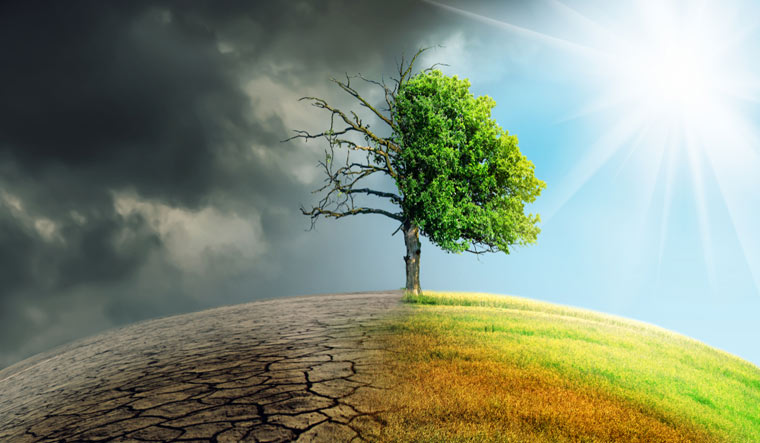Eight states, all towards India's eastern flank, are highly vulnerable to climate change, says the National Climate Vulnerability Assessment Report released on Saturday. The report has identified Jharkhand, Mizoram, Orissa, Chhattisgarh, Assam, Bihar, Arunachal Pradesh, and West Bengal as states highly vulnerable to climate change. "These states, mostly in the eastern part of the country, require prioritisation of adaptation interventions," the report states.
The report, titled Climate Vulnerability Assessment for Adaptation Planning in India Using a Common Framework was released by Ashutosh Sharma, secretary, Department of Science and Technology. It identifies the most vulnerable states and districts in India with respect to current climate risk and key drivers of vulnerability. Assam, Bihar, and Jharkhand have over 60 per cent districts in the category of highly vulnerable districts.
"We have seen how extreme events are on rise both in terms of their number and severity. Mapping the parts of India that are vulnerable to such changes will help initiating climate actions at the ground level. The report should be made easily accessible to all stakeholders so that it can benefit climate-vulnerable communities across India through development of better-designed climate change adaptation projects," said Sharma.
Assessing vulnerability is the first step towards assessing climate risk. There are two other components like Hazard and Exposure, that also need to be assessed to arrive at overall climate risk, said Akhilesh Gupta head of the department's Climate Change Programme. They will take up these assessments next. N.H. Ravindranath, climate change expert who steered the study explained that the report has helped identify the most vulnerable states, districts and panchayats and will aid in prioritising adaptation investment, developing and implementing adaptation programs.
A total of 94 representatives from 24 states and two Union Territories participated in the nation-wide exercise jointly supported by the DST and the Swiss Agency for Development & Cooperation (SDC). Corinne Demenge, Head, Swiss Cooperation Office, Embassy of Switzerland in India, hoped that the assessments will contribute to the development of more targeted climate change projects and that they will support the implementation and the potential revisions of the State Action Plans on Climate Change.





